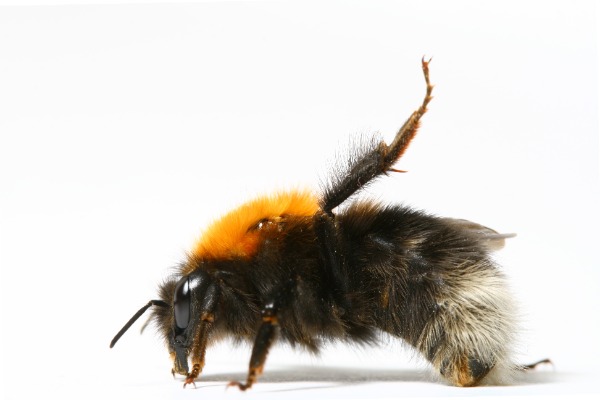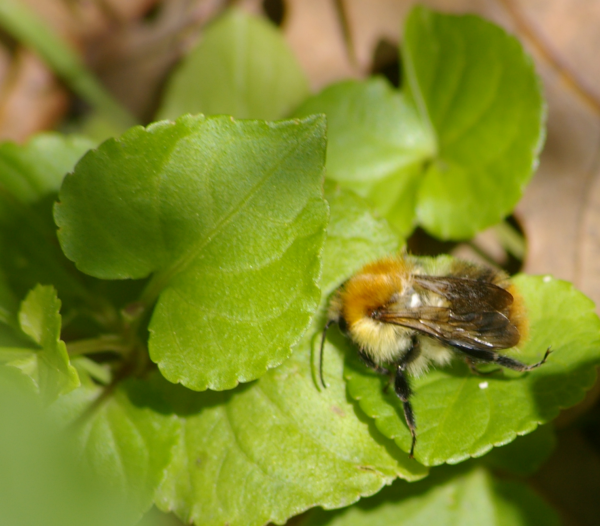Why Do Bees Always Follow Me?
I have had umpteen questions about this - finally it's time I wrote a page!
I suspect that this question has become more common since the profile of bees has been somewhat raised.
On the one hand, people appear to be taking more notice of bees. On the other, they may also therefore be noticing behaviours they may not have otherwise observed.
The common questions are along the following lines:
- Why is this bee following me? / This bee wouldn't leave me alone. How can I stop bees following me?
- Are bees attracted to me? Is this bee attracted to my perfume?
- Are bees trying to gather nectar from the flower pattern on my shirt? Are some colors of clothing attractive to bees?
- If a bee is following me, does it mean it wants to sting?
- Is this bee trying to say 'hello'?
- Do bees like humans?
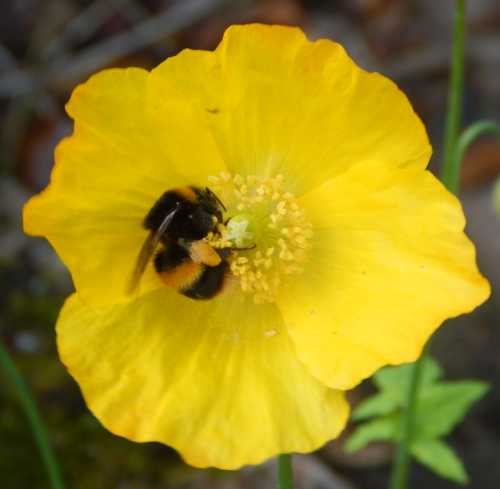
4 Reasons why bees may appear to 'follow' you
You can guess from the list above that some people are simply curious about the behaviours of bees, others seek reassurance or want advice.
If your question is similar, I hope this page helps. Here are 4 possible reasons.
1. Investigatory
I received an email a while ago from a lady who was curious about what she thought was a bumble bee hanging around her patio whenever she went to sit outside.
It turned out that the bee was not a bumble bee at all, but a large male carpenter bee. A similar scenario is described on my page about carpenter bees.
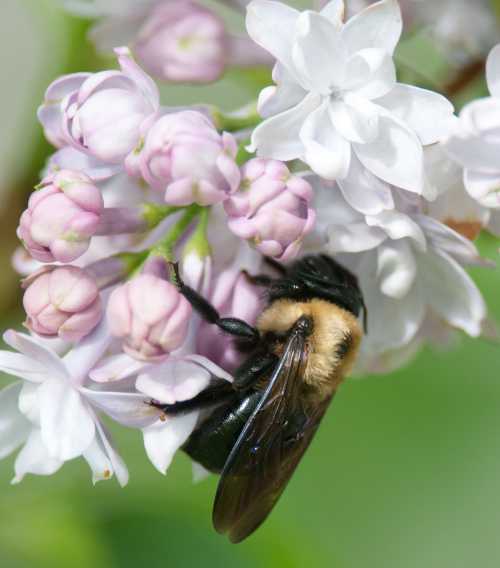 Above: Xylocopa virginica - found in the USA, it's not uncommon for this species to be mistaken for a bumble bee. Males protect nests and may investigate disturbances close by, although they cannot sting.
Above: Xylocopa virginica - found in the USA, it's not uncommon for this species to be mistaken for a bumble bee. Males protect nests and may investigate disturbances close by, although they cannot sting.With these particular types of bees, males are territorial and tend to investigate "intruders" whilst looking out for females with which to mate.
These carpenter bees can be quite large, so this may seem intimidating, however, males cannot sting at all! In other words, it's bravado!
In fact, male bee species generally - whether they be honey bees, carpenter bees or bumble bees, are unable to sting, only the females can, but female bees of many species are largely docile, as is the case with female carpenter bees.
If you suspect you are being 'investigated' by a carpenter bee, you may find there is a bee nest nearby.
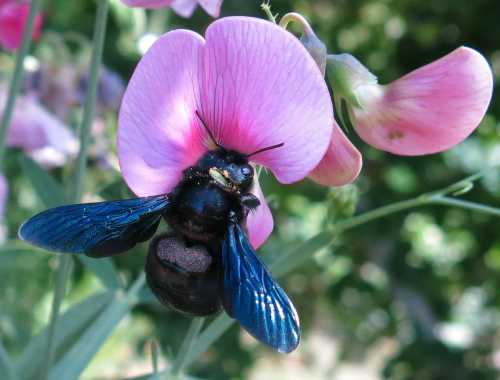 Violet Carpenter Bee - Xylocopa violacea
Violet Carpenter Bee - Xylocopa violacea2. Bees attracted to human sweat - 'Sweat bees'
I get queries from the US about this. Certain types of bees known as halictid bees, are attracted to salty human sweat, and may land on arms or around the under arms in a bid to get at it!
This can of course be disconcerting. However, if this is the case for you, your options could include:
- wear a deet-free insect repellent
- use a eucalyptus or mint body rub and/or deodorant
- use citronella candles to discourage them from being around key areas outside - such as places where you eat.
3. Defensive
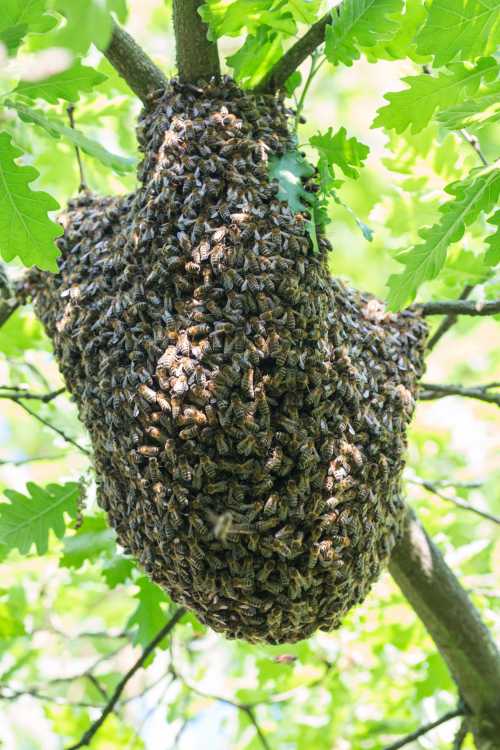
If you disturb a honey bee nest or swarm (for example, by throwing items at the nest) don't be surprised if you get stung!
A threatening disturbance of a honey bee colony such as this could provoke a reaction that is not about 'following' you as such, but is defensive and may end in pain! In such scenarios, you'll see lots of bees, not merely a single bee close by.
It's best not to disturb swarms of honey bees, but preferably leave them alone or call a beekeeper if absolutely necessary.
4. Attraction to color or scent
Personally, I have never been bothered by bees approaching me. If they are indeed attracted by my clothes or perfume and even if they land on me, I find they will quickly move on once they discover nothing is to be gained. I have never been stung in such scenarios.
If you are worried, again, use a suitable repellent. If you wish to repel bees from your garden, see my page about flowers that are believed to repel bees.
Keep calm
I find most people are reasonable and wish the bees no harm.
The key is to keep calm, let the bees alone, and you are unlikely to be stung because bees are not generally out to sting you unless they feel severely threatened as described above.
I have been up close to bees for many years and have never been stung once, and believe my calmness, love and respect for these wonderful creatures is the reason.
Still, if you are concerned, or you have a severe allergy to bee stings, use a deet-free repellent, and carry an Epi-pen - see your medical practitioner for this.
I wish you well.
Do bees sleep?
Apparently they do, but how do we know?

